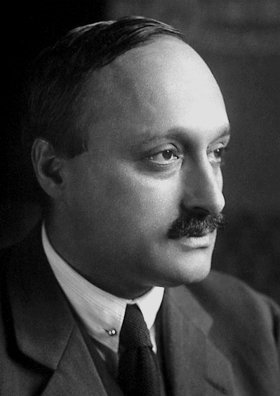Why was James Franck Awarded the Noble Prize for Physics in 1925?
James Franck: Nobel Laureate and Pioneer in Quantum Mechanics (1925)
James Franck, a German-American physicist, made significant contributions to the field of quantum mechanics during the early 20th century. Renowned for his innovative experiments and insightful interpretations, Franck played a pivotal role in unraveling the mysteries of atomic and molecular behavior. In recognition of his groundbreaking research, he was awarded the Nobel Prize for Physics in 1925. This article explores the reasons behind Franck’s prestigious honor and highlights his remarkable scientific breakthroughs.

The Franck-Hertz Experiment:
Franck’s Nobel Prize was primarily awarded for his seminal work on the Franck-Hertz experiment, conducted in collaboration with Gustav Hertz. In the early 1910s, scientists were grappling with the wave-particle duality of electrons and the quantization of energy levels in atoms. The Franck-Hertz experiment, performed in 1914, provided compelling evidence for the existence of discrete energy levels in atoms and laid the groundwork for the development of quantum mechanics.
The experiment involved bombarding mercury vapor atoms with electrons of varying energies. As the electrons passed through the vapor, they collided with the atoms, transferring energy. Franck and Hertz observed that when the electron energy matched a specific threshold, the atoms absorbed energy and entered higher energy levels. Subsequent collisions with the atoms led to the emission of light. The experiment’s outcome confirmed the quantized nature of atomic energy levels, supporting the emerging quantum theory.
Contributions to Quantum Mechanics:
Franck’s work on the Franck-Hertz experiment played a pivotal role in the development of quantum mechanics. The experiment provided empirical evidence for the existence of quantized energy levels in atoms, validating the theoretical framework proposed by Max Planck and Albert Einstein. It also laid the foundation for the Bohr model of the atom and contributed to the understanding of electron behavior in atoms.
The Franck-Hertz experiment’s significance extended beyond confirming energy quantization. It shed light on the behavior of electrons in the presence of electric fields and offered insights into electron-electron interactions within atoms. Franck’s work opened new avenues for investigating atomic and molecular phenomena, fueling further advancements in quantum mechanics.
Impact on Experimental Physics:
Franck’s pioneering work on the Franck-Hertz experiment had a profound impact on the field of experimental physics. His meticulous experimental design and rigorous data analysis set new standards for precision measurements. The experiment’s success demonstrated the power of controlled laboratory experiments in uncovering the fundamental properties of matter. Franck’s approach influenced subsequent generations of experimental physicists, emphasizing the importance of careful observation and systematic investigation.
Recognition and Legacy:
James Franck Nobel Prize for Physics in 1925 honored his exceptional scientific contributions and recognized his role in advancing our understanding of atomic and molecular behavior. The Franck-Hertz experiment provided crucial evidence for the quantization of energy levels in atoms, paving the way for the development of quantum mechanics. Franck’s work shaped the trajectory of atomic and molecular physics, providing a solid foundation for subsequent research and theoretical developments in the field.
Conclusion:
James Franck Nobel Prize for Physics in 1925 celebrated his groundbreaking research and the significance of the Franck-Hertz experiment in quantum mechanics. His experimental prowess and insightful interpretations advanced our understanding of the quantized nature of atomic energy levels and electron behavior. Franck’s contributions not only shaped the field of atomic and molecular physics but also highlighted the importance of precision experiments in unraveling the mysteries of the quantum world. His legacy continues to inspire scientists, reminding us of the transformative power of empirical investigation in pushing the boundaries of scientific knowledge.




